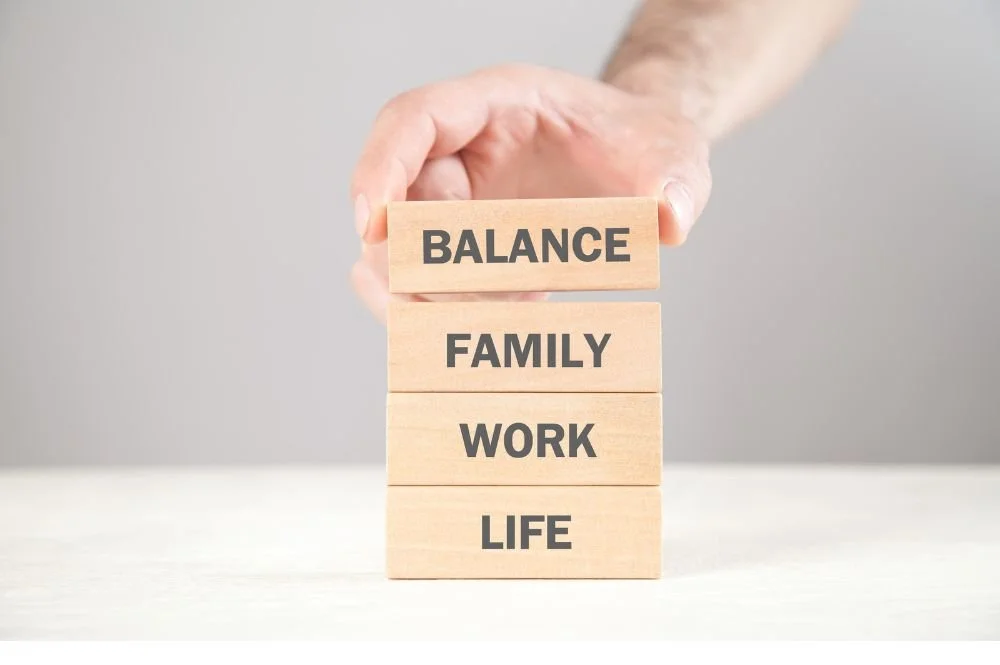An in-depth look at compassion fatigue and burnout with practical solutions.
Workplace Wellness Programs
Resources for a Resilient Future
Reduce Stress With Mindfulness
Pastor and Ministry Burnout
Nutrition For Well-being
How To Support Well-being With Nutrition
This article will explore how to decrease stress, increase energy, get better sleep, fuel our bodies for exercise, and support our mental health through nutrition.
Nutritional support is critical to our well-being. Many foods, nutritional philosophies, and diets support one’s health. The information provided below is based on medical evidence-based research.
Nutrition For Stress Management
Consistently, I hear from coaching clients and managers that people are experiencing overwhelming stress and exhaustion. We all need nutritional support to fuel our job and lifestyle to find work-life balance.
We are a society of overworked, overstressed people. We’re all striving to find a balance between our personal and professional lives. We can support our overall well-being by eating for optimum nutrition. In my own life, I do that by eating lots of fruits and vegetables, nuts and seeds, quality protein, and fermented food. Unfortunately, it is natural to gravitate toward quick fixes in the forms of fast carbohydrates filled with sugar or excessive caffeine when we're stressed.
How do we reduce stress and create wellness through nutrition?
According to the research-based Journal of Nutrition & Food Sciences, “A nutritious, well balanced diet has powerful stress reducing benefits that improve brain functioning, shore up immune function, lower blood pressure, improve the circulation, and reduce toxins from the body. Some specific nutrients play a very important role in reducing the levels of cortisol and adrenalin in the body and also the stress chemicals that activate fight and flight response.” 1
Magnesium is one mineral that can help to manage stress. The Swiss-based research institute, MDPI cites, “Magnesium deficiency and stress are both common conditions among the general population, which, over time, can increase the risk of health consequences. Numerous studies, both in pre-clinical and clinical settings, have investigated the interaction of magnesium with key mediators of the physiological stress response, and demonstrated that magnesium plays an inhibitory key role in the regulation and neurotransmission of the normal stress response.” 2
Nutrition For Energy
Stress has a way of decreasing our energy. Although some people enjoy working under pressure, in the long run, it drains them of energy, especially if the pressure is ongoing.
I consistently hear people share they are exhausted, feel their stress is overwhelming, and that after work, they have no energy left for themselves or their family. Additionally, more people than ever before are talking openly about burnout. Managing stress and consuming nutritious foods can help sustain our energy.
According to research, two foods that can help boost and sustain energy include bananas and dark leafy greens.
Medical News Today reports, ”A study in the journal PLoS One notes that eating a banana before a long bicycle ride helps performance and endurance just as much as a carbohydrate drink.” 3,4
Medical News Today also cites, “People often identify kale, spinach, Swiss chard, beet greens, and collard greens as superfood leafy greens. These foods are rich in vitamins A, C, E, and K, and many B vitamins. Leafy greens also contain an abundance of carotenoids, iron, magnesium, potassium, and calcium.” 5
Nutrition For Good Sleep
Most people find they don’t sleep well when under stress. Furthermore, those who go through burnout often struggle with insomnia. While mindfulness can offer excellent results, nutrition is often an overlooked factor.
When I went through burnout, I sought help from many professionals, including my medical doctor, naturopaths, osteopaths, and registered massage therapists. Each one had their role to play.
My naturopath surprised me when of all my symptoms of burnout, she chose to focus on my sleep first. She indicated that if we could improve my sleep, my body could begin healing itself.
How do we go about feeling our bodies for a great night’s sleep?
According to the experts at The Sleep Foundation, “As a general rule, a balanced diet made up largely of a variety of vegetables and fruits is able to provide the recommended daily intake of vitamins and nutrients, contributing to better sleep while promoting a healthy weight. Because both sleep and nutrition are extremely complex and involve multiple interconnected systems of the body, it is challenging to conduct research studies that conclusively demonstrate a single diet that is best for sleep. Instead, what appears most important is that a person gets adequate nutrition without overconsuming (sic) unhealthy foods.” 6
An article published on the National Library of Medicine National Institutes of Health found that “following a Mediterranean dietary profile is associated with fewer insomnia symptoms in women.” 7
Nutrition For Exercise
I love to exercise. Before going through burnout, I ran marathons, and the gym was my social club. Lifting weights and cardio classes were a regular part of my week. Now I prefer getting exercise in nature through hiking, cycling, and kayaking.
I often hear from people working from home the challenge to fit exercise into their busy schedule. Creating a hard stop between work and home life helps set a change toward fitness in motion. Begin by cleaning up your desk before finishing the day and closing the office door, so it no longer beckons. Then, turn off phone, text, and social media notifications, so it is easier to focus on fitness.
According to the Mayo Clinic, eating a healthy breakfast, being mindful of portion size, snacking well, eating after exercise, and drinking enough water can all contribute toward maximizing your workout. 8
Nutrition For Mental Health
It is well documented that stress affects our physical health. We can experience that in our pounding heart, raised blood pressure, and digestion that seems to quit.
Stress also affects our mental health by increasing anxiety and insomnia. Many studies show that mental health concerns sky-rocketed during COVID. The Centres for Disease Control and Prevention (CDC) states, “During June 24–30, 2020, U.S. adults reported considerably elevated adverse mental health conditions associated with COVID-19.” 9,10
According to BMJ, a global healthcare knowledge provider that partners with more than 8000 medical organizations worldwide, “In recent years, the relationships between nutrition and mental health have gained considerable interest. Indeed, epidemiological research has observed that adherence to healthy or Mediterranean dietary patterns—high consumption of fruits, vegetables, nuts, and legumes; moderate consumption of poultry, eggs, and dairy products; and only occasional consumption of red meat—is associated with a reduced risk of depression.” 11,12
According to Sutter Medical Foundation, “To boost your mental health, focus on eating plenty of fruits and vegetables along with foods rich in omega-3 fatty acids, such as salmon. Dark green leafy vegetables in particular are brain protective. Nuts, seeds and legumes, such as beans and lentils, are also excellent brain foods.” 13
Promoting effective self-care through nutrition is critical to maintaining our physical and mental health. It is also essential for preventing and recovering from burnout and cultivating a life of wellness. By pairing nutritional support with stress management, work-life balance, and resilience, we can benefit from increased vitality.
Nutrition is an important part of a self-care routine to support overall well-being.
Author: Bonita Eby
Bonita Eby is a Burnout Prevention & Organizational Culture Consultant, Executive Coach and the owner of Breakthrough Personal & Professional Development Inc., a company specializing in burnout prevention and wellness.
Bonita has a professional healthcare background and extensive research knowledge combined with almost 20 years of experience developing leaders, training teams, and coaching people to become the best they can be.
Breakthrough Personal & Professional Development Inc specializes in burnout prevention and corporate wellness, ensuring the longevity and peak performance of individuals and organizations. We design our programs based on the company’s unique needs to transform internal systems to create a culture of wellness.
References
1. Singh, K. (2016, January 1). Nutrient and Stress Management. Retrieved March 23, 2021, from https://www.researchgate.net/publication/306007566_Nutrient_and_Stress_Management
2. Pickering, G., Mazur, A., Trousselard, M., Bienkowski, P., Yaltsewa, N., Amessou, M., . . . Pouteau, E. (2020, November 28). Magnesium status and stress: The vicious circle concept revisited. Retrieved March 23, 2021, from https://www.mdpi.com/2072-6643/12/12/3672?type=check_update&version=3
3. Johnson, D. (2018, December 10). The 28 best energy-boosting foods and drinks. Retrieved March 23, 2021, from https://www.medicalnewstoday.com/articles/323947
4. Nieman, D., Gillitt, N., Henson, D., Sha, W., Shanely, R., Knab, A., . . . Jin, F. (2012, May 17). Bananas as an energy source during exercise: A metabolomics approach. Retrieved March 23, 2021, from https://www.ncbi.nlm.nih.gov/pmc/articles/PMC3355124/
5. Ware, M., RDN, L.D. (2019, January 27). Superfoods: Health benefits, uses, and risks. Retrieved March 23, 2021, from https://www.medicalnewstoday.com/articles/303079
6. Truong, K., MD (Ed.). (2020, November 06). Nutrition and sleep: Diet's effect on sleep. Retrieved March 23, 2021, from https://www.sleepfoundation.org/nutrition
7. St-Onge, M., Mikic, A., & Pietrolungo, C. (2016, September 15). Effects of diet on sleep quality. Retrieved March 23, 2021, from https://www.ncbi.nlm.nih.gov/pmc/articles/PMC5015038/
8. Maximize your workout by knowing what - and when - to eat. (2019, October 17). Retrieved March 23, 2021, from https://www.mayoclinic.org/exercise/art-20045506
9. Greenwood, B., Thompson, R., Opp, M., & Fleshner, M. (2014, September 30). Repeated exposure to conditioned fear stress increases anxiety and delays sleep recovery following exposure to an acute traumatic stressor. Retrieved March 23, 2021, from https://www.frontiersin.org/articles/10.3389/fpsyt.2014.00146/full
10. Czeisler MÉ, Lane RI, Petrosky E, et al. Follow-up Survey of US Adult Reports of Mental Health, Substance Use, and Suicidal Ideation During the COVID-19 Pandemic, September 2020 — United States, June 24–30, 2020. MMWR Morb Mortal Wkly Rep 2020;69:1049–1057. https://jamanetwork.com/journals/jamanetworkopen/fullarticle/2776559?utm_campaign=articlePDF&utm_medium=articlePDFlink&utm_source=articlePDF&utm_content=jamanetworkopen.2020.37665
11.Firth, J., Gangwisch, J., Borsini, A., Wootton, R., & Mayer, E. (2020, June 29). Food and mood: How do diet and nutrition affect mental wellbeing? Retrieved March 23, 2021, from https://www.bmj.com/content/369/bmj.m2382
12. Lassale C, Batty GD, Baghdadli A, et al. Healthy dietary indices and risk of depressive outcomes: a systematic review and meta-analysis of observational studies. Mol Psychiatry2019;24:965-86. doi:10.1038/s41380-018-0237-8 pmid:30254236
13. Barish-Wreden, M., M.D., ABIHM. (n.d.). Eating Well for Mental Health. Retrieved March 23, 2021, from https://www.sutterhealth.org/health/nutrition/eating-well-for-mental-health#:~:text=To%20boost%20your%20mental%20health,Dr










